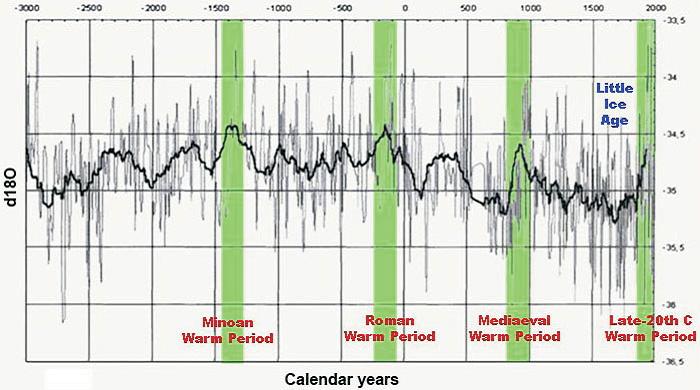Quote:
Original post by Eelco
Quote:
Original post by Trapper Zoid
Concise? How about because the people who measure and analyse the data say so? [wink]
Which people?
The IFCC, for one. But you wanted me to be concicse [smile]. In return, I don't know what the backing is for saying the "temperatures haven't changed in 15 years, therefore no global warming".
Quote:
Factoring in recent data, there is no trend in sea-ice over the recent years either.
That is, insofar it makes sense to talk about trends over such a short period of time. Mostly, it doesnt.
That's the point. Senator Fielding was asking questions about temperature change over the short period of time. They aren't relevant.
Quote:
If you want to focus on long terms trend, as you should, one concludes that current temperatures are about equal to the way they were in the early 20th century, and lower than they were during the medieval optimum (note that they used to label warm periods an optimum before AGW came around, and thats not in a mathematical sense, but in a 'gee, life seemed to flourish then' sense). To say we have been significantly influencing temperature either way so far, whether you talk about a 15 year or 30 year timespan, is bogus. There is far too much noise in the data, on any timescale, to draw any such inferences whatsoever.
Do you have a citation or figures for there being no change in the complete global temperature (air and ocean) since the early 20th century? The figures I've seen mainly start from the middle of the 20th century.
And note that I, in this thread, am not arguing anything about whether
we are influencing the temperature one way or another. I'm just pointing out that the figures I've seen and linked to pretty strongly suggest that the total global temperature is rising, for whatever reason. That's what Fielding is denying, and for me to sway over to his point of view I'm going to need some harder data than "it's not so different from the high point a decade ago in 1998". Not when the decade-by-decade trend is against that.









